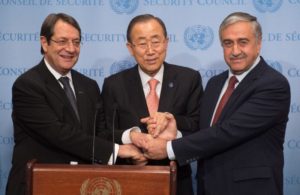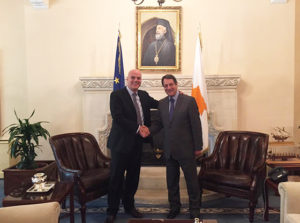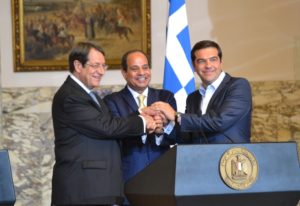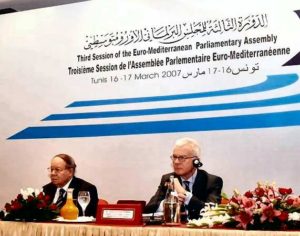Battle for oil rests not on flags but on obscure UN panel
The international battle for Arctic territory may look like a Wild West brawl but the real fight for supremacy is more likely to revolve around legal arguments and seismic data than showdowns between ice-breakers or submarines.
As Canada unveils plans for a military base and Russia drops a titanium flag on the seabed, lawyers say the real centre of action is an obscure United Nations-hosted body known as the Commission on the Limits of the Continental Shelf.
The commission is the global authority that will determine how much territory the big five Arctic seabed claimants – Canada, Russia, the US, Denmark and Norway – will be able to bag for oil exploration and other uses.
Robert Volterra, a partner at Latham & Watkins, the law firm, says cases pleaded by states at the commission over the coming years are likely to have more impact on the Arctic’s future than “symbolic” flag-planting intended for Russian domestic political consumption.
“There is a consistent body of public international law,” Mr Volterra says. “It’s not like the age of discovery, where the European voyager went out and said: ‘I claim this land on behalf of the Queen of England or the King of Spain.'”
Lawyers and scientists say Russia’s latest Arctic mission was most significant for the opportunity it provided to gather more geological and geophysical data to support its quest to extend its territorial rights. Russia and Norway have lodged claims for territorial extensions with the continental shelf commission; marine lawyers expect Canada and Denmark to follow suit.
The commission, which is made up of scientists and legal experts, is responsible for implementing the 1982 UN Convention on the Law of the Sea (Unclos), the key international agreement in this area.
Unclos gives countries the right to exploit the seabed up to 200 nautical miles offshore, with the option of an extension if they can prove to the commission that the continental shelves emanating from their coasts go farther still out to sea.
States must make these claims for extra miles within 10 years of applying the treaty, which means Canada has until 2013 and Denmark until 2014 to launch a case.
The complication with Unclos is Washington’s reluctance – not for the first time – to submit to UN authority by ratifying a treaty approved by much of the rest of the world.
Lawyers say this creates a dilemma for the US. While it retains autonomy by staying out of the treaty, this potentially limits its seabed claims to the 200-mile limit allowed it under customary international law.
Politicians in Washington have stepped up a campaign to persuade the US Congress to embrace Unclos and so ensure that Washington has a say in the adjudication of Arctic disputes.
President George W. Bush has called on the Senate to ratify the treaty to “secure US sovereign rights over extensive marine areas, including the valuable natural resources they contain”, as well as giving Washington formal negotiating rights.
But the treaty once rejected by President Ronald Reagan continues to repel some conservatives, who see it as an attempt to subordinate US sovereignty to supranational entities.
Doug Bandow, a former administration official who took part in negotiations on the treaty on behalf of Mr Reagan, has argued that it would establish “what looks like a second UN”.
Tourists rush for last glimpse of vanishing wilderness
When Russian explorer Artur Chilingarov planted the Russian flag on the seabed of the North Pole last week he established Russia as a “great Arctic power” and the Arctic as a great tourist destination, writes Isabel Gorst in Moscow.
As the globe warms up, tourists are heading north to catch what might be a last glimpse of what Russians call “the ice cap of the world”.
Valery Chumakov, the general director of Tour Land, a Moscow-based travel agency specialising in extreme tourism, said all cabins on ice-breaker cruises from Spitsbergen to the North Pole were fully booked this year.
“We have begun taking reservations for the 2008 season,” he said.
Tour Land’s two-week icebreaker cruise to the North Pole costs $21,000 (£10,380, €15,300).
Ten years ago there were 35,000 visitors a year to Spitsbergen, the largest and most popular of the Arctic Ocean’s islands, but last year there were 70,000.
Glacial formations cover 60 per cent of the ocean’s five main islands and 150 small ones, while temperatures tip 6úC on average in July.
Mikhail Muravyov, the general director of Ultra Travel, a Russian tourist agency, said: “Interest in Arctic tours is awakening as the climate warms. We don’t know when the ice will melt, so people want to seize their chance.”



